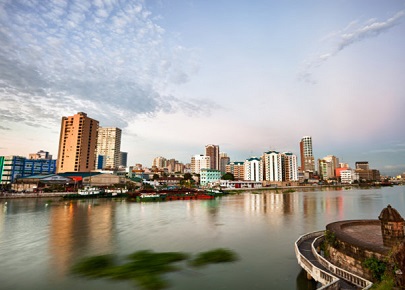Outsourcing to the Philippines: How to Expand Overseas Safely

Globalization is a process that was driven by several different things, but one of the aspects that remains extremely important is the economy. Every country in the world has assumed a role based on their own capabilities, resources and what has been named as competitive advantage –meaning that one thing that puts this country in a superior position compared to others. And this same behavior is reproduced in the business context: modern companies focus on what they really know, they concentrate their efforts on doing what they know how to do best and leave the secondary tasks or processes –which are not necessarily less important – to other companies who specialize in that task. That is the nature of outsourcing! But, the real question these days, is how can companies outsource to low cost countries safely?
Outsourcing is a common practice nowadays, and it has proven to be very effective in reducing costs and helping companies grow efficiently. But outsourcing has its constraints and every business owner and corporate executive looking for outsourcing in the Philippines must be aware of what they´re facing before deciding which third party is going to take care of the task. Ignoring the risk can lead to bad media coverage and financial loss.
In the Philippines, Manila is one of the preferred destinations for outsourcing. Private investigators in Manila have had a lot of experience with verifying individuals and companies that are being hired by foreign companies, and one of their recommendations is that having the right information from the other party will always help business. Outsourcing means relying on someone else, so you better know well whom you´re dealing with.
Traditionally, outsourcing was merely a manufacturing thing: companies overseas manufactured goods for a lower price and the items were shipped back to their original country for its commercialization. In that time, the cost and quality of manufacturing were the only variables to consider, and these two things defined whether or not there was a deal.
But in today´s world outsourcing has expanded to many services within a company, basically anything that can be carried out by third parties not directly employed by the parent company. Companies outsource their IT services, their accounting, their payroll services, their customer service or contact centers, etc. This has changed the outsourcing landscape and it has added many other variables to the question of who can actually take care of that part of the business. Things to consider include language barriers, political and cultural variables, ethical and environmental issues, corruption, fraud, money laundering, human rights, international treaties, and a wide range of other considerations. Just to name a few….
But above all, the most important and the first thing to consider is information. Do you have the whole picture or are you rushing into a deal without knowing the relevant facts? Being cautious by performing background checks and due diligence in the Philippines is a very smart decision to minimize the risks involved with potentially fraudulent situations, criminals or with any other situation that could put your company in financial or reputational danger.
Service outsourcing has become one very important economic activity in the Philippines especially because of the English-language communication skills of the Filipinos. Few countries have the maturity that the Philippines has in this field, but there are also many risks associated to doing business here. If you’re looking for a call center, Philippines is probably on your short list. But that doesn’t mean it will be easy finding a good match.
Investigators recommend that just like companies hire specialists to conduct employment screenings in the Philippines, so do business owners need to get professional help to conduct background check investigations on their potential third parties.
The Philippines is a hot spot for outsourcing and foreign investment. Grasp the opportunities and advantages, but do it safely!
C. Wright
© 2015 Philippine PI
![]()
© Copyright 2015 Philippine PI. All Rights Reserved. This content is the property of Philippine PI, LLC and is protected by United States of America and international copyright laws.













